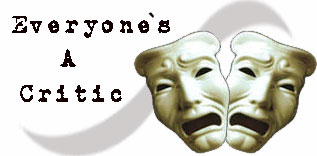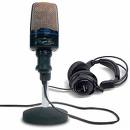



|
"More
than 22 million American adults own iPods or MP3 players and
29% of them have downloaded podcasts from the Web so that they
could listen to audio files at a time of their choosing."
|
|
||||
In a Nutshell: Radio is the mother of Podcasting. "Podcast" = ipod + broadcasting. Author Bill McKibben points to radio being the single type of communication mode that easily integrates into new digital technology, such as the Internet, expanding one's world of radio communication consumption. Marshall McLuhan popularized the term "global village" with regard to TV, but McKibben applies this term to radio: "The Internet, combined with radio, offers the possibility of a different model - many communities you can look in on from time to time." He goes on to point out that while film and television have become more costly to produce in attempts to try to appeal to everyone, radio has become cheaper to produce. Radio can be created for a local or niche audience and, by accessing cheap software, virtually anyone can produce and reach a global audience through the Internet by creating their own radio broadcast. |
|||||
| Definition of Podcasting |
|||||
| In a Nutshell: A series of digital media files (either audio or video) that are released episodically and downloaded through web syndication. Source
|
|||||
| History of Podcasting | |||||
| 2000 - MyAudio2Go.com enabled users to download episodic news, sports, entertainment, weather, and music in audio format for listening on a PC.MTV DJ Adam Curry and Dave Winer proposed using RSS feeds to upload new episodes, make episodes more immediately accessible. 2001 - Winer demonstrated the RSS enclosure feature by enclosing a Grateful Dead song in his Scripting News weblog. 2003 - Stephen Downes started first RSS Feed aggragate in his Ed Radio application, demonstrating that it could collect RSS feeds of MP3s.The proponents and developers began teaching the public about podcasts through different events and demos. Between 2004 - 2009 - Ben Hammersly came up with name podcast = ipod + broadcasting, iTunes started including podcasts in the iTunes store, "Podcast" becomes Word of the Year in New Oxford American Dictionary, Volomedia receives podcast patent and Adam Curry and Dave Winer argue that they came up with it 2 years earlier. Source
|
|||||
| Examples of Podcasting | |||||
 |
|||||
| The Benefits of Podcasting (Producing or Consuming) | |||||
|
|||||
| The Negatives | |||||
|
|||||
| The Basics of Setting Up Your Own |  |
||||
| More Resources | |||||
Sarah
McNabb - CMNS 545: Communication & Technology - 2010 |





